On February 25, 2022, on a day when thermometers barely showed -15 degrees C, four SUVs crossed illegally from Canada to the United States, on a dirt road in the northern American state of Maine.
27 Romanian citizens, among them a pregnant woman, were crammed into the four vehicles which were advancing through the snow banks.
On February 25, 2022, on a day when thermometers barely showed -15 degrees C, four SUVs crossed illegally from Canada to the United States, on a dirt road in the northern American state of Maine.
27 Romanian citizens, among them a pregnant woman, were crammed into the four vehicles which were advancing through the snow banks.
How a small American town has become a transit point for Romanians who want to illegally enter the USA from Canada
The 27 Romanians were stopped by the American border police from Houlton. The agents saw the Romanians on the cameras which were mounted on the trees in the forests surrounding the place.
Tyler Close, one of the police officers who caught the Romanians, says that all the passengers were dressed too thinly for the cold outside. "I remember that day because the weather was bad, it had recently snowed in Maine. I know it may not seem like much, but you have to understand that the snow banks were probably hip-high, it was very cold, the wind was blowing", the agent told PressOne.
We want to be able to report on all the significant events in the world, in an objective and well documented manner. If this is also important to you, help us see it through. Any donation counts.PressOne
I met him this summer and he led us down that road, which seemed to lead nowhere. "The reality is that there is nothing really in this area. If something happens to you, it's the woods and you have about 20 miles [32 km, ed.] to the nearest town."
This reality did not discourage the 40 Romanians who tried to illegally cross the border between Canada and the USA in Houlton in the first five months of the year. And it is only about those who were caught in the vicinity of this small town with approximately 6,000 inhabitants, a place where it is difficult to escape unnoticed as a foreigner.
Mulți ne citesc, puțini ne susțin. Fără ajutorul tău, nu putem continua să scriem astfel de articole. Cu doar 5 euro pe lună ne poți ajuta mai mult decât crezi și poți face diferența chiar acum!
The number of Romanians who cross the border illegally through that particular border crossing point is growing exponentially. Compared to previous years, the Houlton area has turned this year into a favorite destination for Romanians who want to enter illegally in the United States from Canada. According to the information provided by the American Border Police, the current numbers are eight times higher than those of the last two years combined, and the largest number of Romanians of the entire state of Maine were caught in Houlton this year.
While the attention is focused on the widespread phenomenon of illegal migration on the southern border of the United States with Mexico, the increase recorded on the northern border, where border protection measures are not as drastic, is not as visible. As far as Romanians are concerned, things were made easier by the removal of visa requirements for Canada since the end of 2017. Practically, a new route of illegal entry into the USA was created, and migrant trafficking networks took advantage of the desire of many to build a new life on American territory.
The statistics of the American Border Police show that this year, until the end of May, 236 Romanians were caught at the northern border, almost double compared to last year and almost 100 more than in 2020.
On a national level, i.e. including the Mexico border, the Romanian migration numbers are increasing. If two years ago there were less than 1,500 people detained, last year this number exceeded 5,100, and this year saw 5,450 Romanians detained only during the first five months of the year.
Agent Tyler Close remembers the group of Romanians found in February, as the largest group he encountered on this part of the border. He was impressed by the pregnant woman, who was already having contractions and was taken to the hospital in Houlton. To his surprise, she refused to receive medical care. The other Romanians were questioned at Fort Fairfield Station.
Predator in Robes: The Diocese of Iași and the Vatican Buried a Sexual Assault Committed by a Catholic Priest Against a Minor in Bacău, Failing to Alert Prosecutors
A Roman Catholic priest abused a 13-year-old girl in the parish where he served in Bacău County: the bishop of Iași knew about it, sent the case to the Vatican, and applied canonical sanctions, but did not notify the authorities, who only intervened later and sentenced him to prison.
They told the agents that they wanted to reach relatives in the American capital, Washington DC. They did not give many details. They did not have any convincing explanations for how they crossed the border, so the Americans decided to send them back to Canada based on Title 42, a measure established during the time of former Republican President Donald Trump. This allowed the American authorities to expel those who entered the country illegally, on the grounds of the urgency represented by the COVID 19 pandemic. The measure was eliminated this spring.
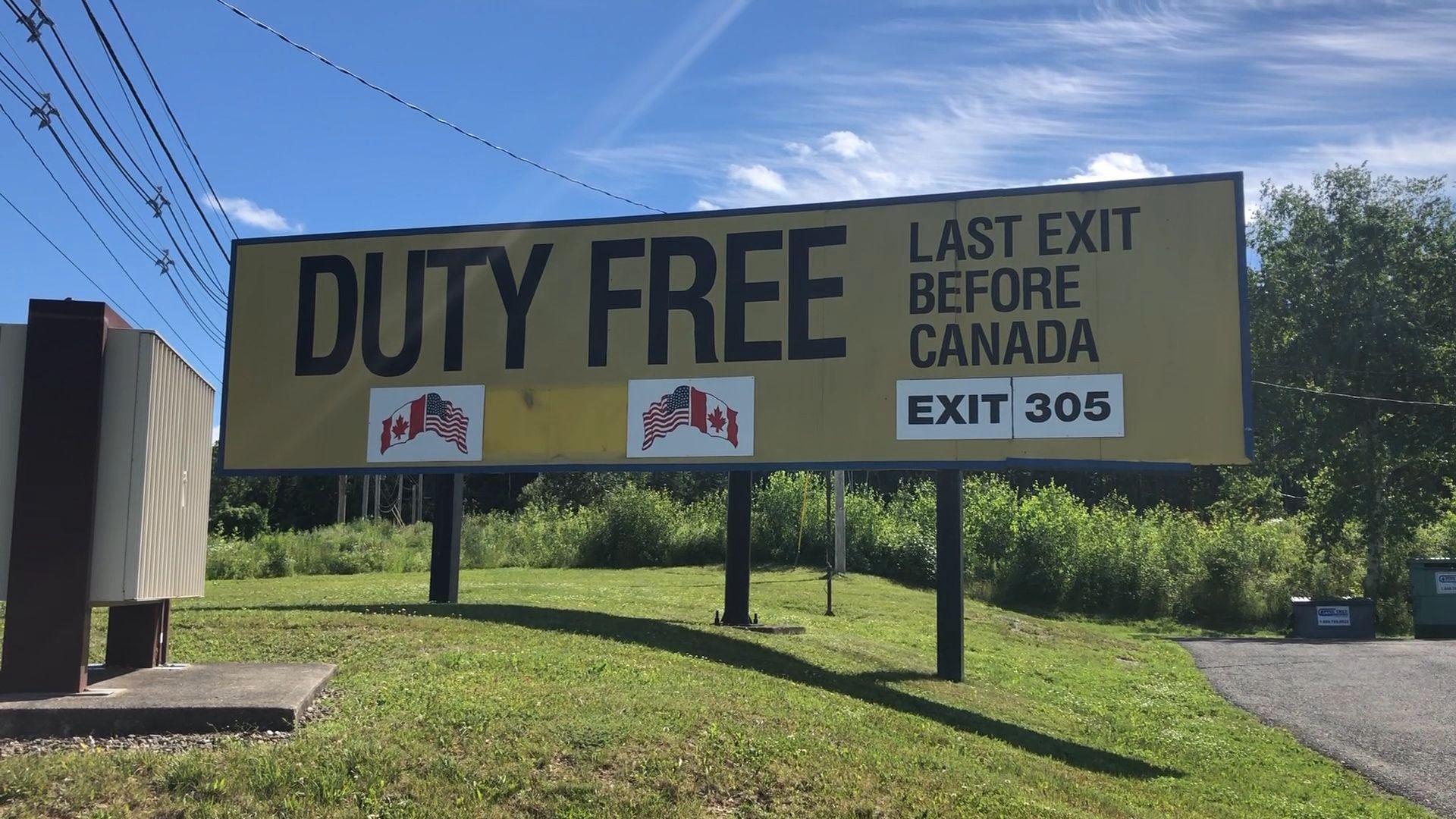
The sign announcing the approach of the Canada-US border. Photo: Octavian Coman
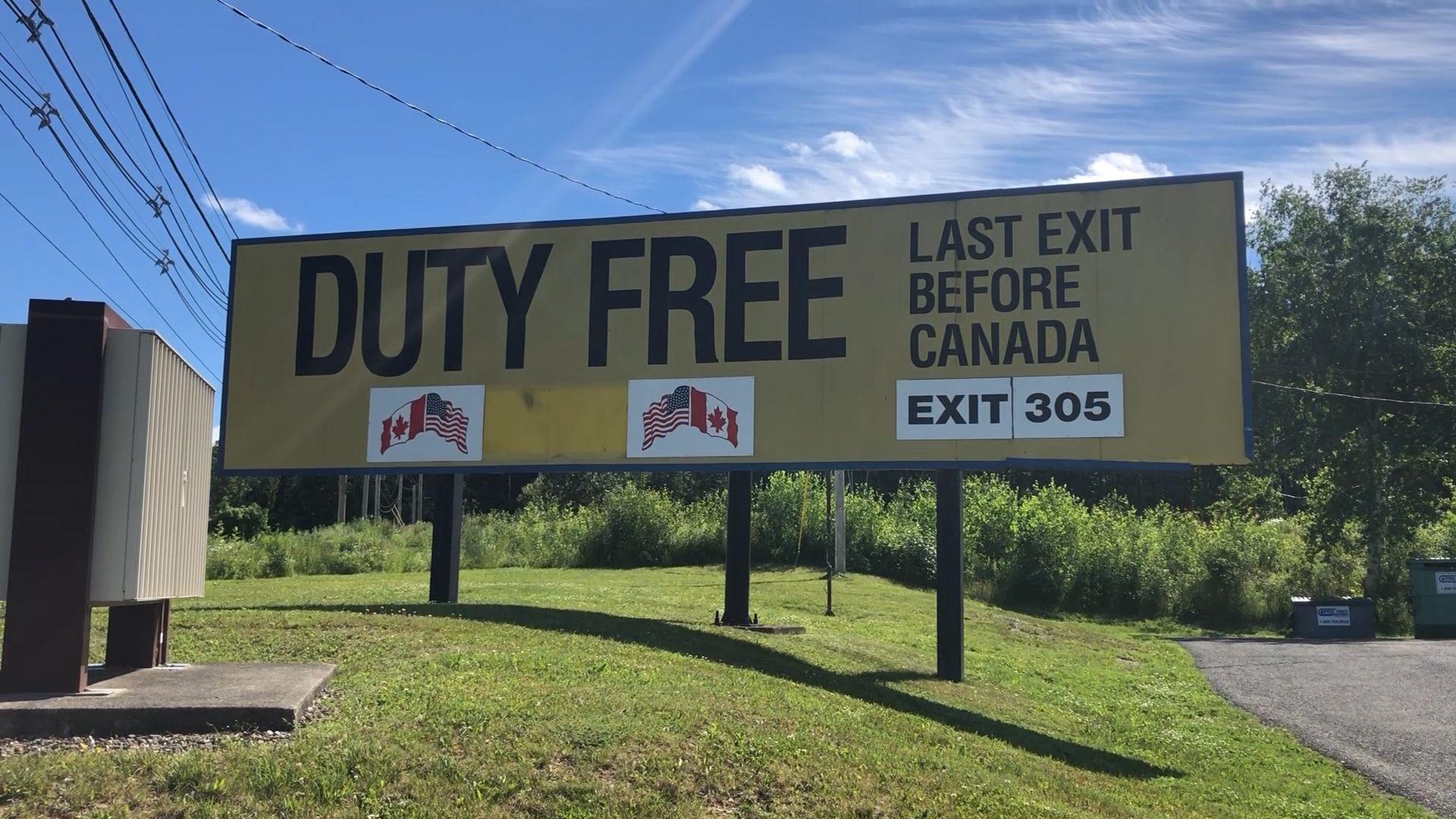
The sign announcing the approach of the Canada-US border. Photo: Octavian Coman
The officers confiscated the Romanians' four cars and approximately 100,000 US dollars that they had on them. American law requires that upon entering the country, any amount over USD 10,000 must be declared, and the Romanians had not done that. The border police agents suspect that the group arrived in the US guided by traffic networks.
Un newsletter pentru cititori curioși și inteligenți.
Sunt curios
Among the clues are large amounts of money and the place where they entered the country, says one of the heads of the Houlton Border Police, Dennis Harmon. "They seem to use new routes, and the moment we catch them on that route, they change it."
Harmon adds that migrants expose themselves to all kinds of dangers in the area. In the summer, if they come with small children, they have to walk many kilometers without access to water. There are dense forests where one can easily get lost, and there are wild bears roaming those forests. "There is no beaten path, they can get hurt. And then who will find them? There is no one here." In winter, they are exposed to a substantial risk of frost. He recalls the story of Indian citizens who died while trying to cross the border between Canada and the USA on foot this winter in North Dakota.
"It looks like a beautiful, quiet area, but only if you are prepared for what it has in store for you. This is what traffickers do, they tell them it is only a one-mile walk. We can all walk one mile. If you have children, you can probably push the stroller one mile. But they do not tell them the whole story. They do not tell them that there is no phone reception, there is no path. They basically take their money, get rid of them, and run," said Dennis Harmon, Deputy Chief of the Houlton Border Patrol.
In an interview for PressOne, Dana Bucin, a US lawyer specializing in immigration, originally from Romania, believes that since the removal of Canadian visas, it is easier for Romanians to cross the border from the north. If they enter the US there, it is because "word of mouth went that the US has amazing opportunities that are worth pursuing, even by illegal methods".
However, it should be noted that life for someone who arrived illegally in the United States is not easy at all. There are Romanian citizens of Roma ethnicity who ask for asylum, on the grounds that they are discriminated at home, but at first they are put in prison anyway. "I also heard of Romanian nationals who stayed in prison for three or four months before they were released."
Then they can appear in front of the Immigration Court, which decides whether they should be deported or not. Those who ask for asylum say that they are afraid to go back to Romania, but few manage to be granted asylum. "The last time I checked, only 26% of asylum cases from Romania were eventually granted." Whoever does not receive asylum is deported. In court, a case will be heard in one to three years.

Dana Bucin, immigration lawyer. Photo: Facebook Dana Bucin

Dana Bucin, immigration lawyer. Photo: Facebook Dana Bucin
"In the meantime, life is quite bitter as an illegal migrant," says Dana Bucin, who lives in the state of Connecticut. Asylum seekers are only entitled to request a work permit after six months. Until then, they do not have a Social Security Number, the equivalent of the CNP in Romania, without which they cannot open bank accounts and cannot rent a house.
The rules tightened since the pandemic, when owners were not allowed to evict the tenants, even if they did not pay the rent. Even for immigrants who enter the country legally, the owners also ask for guarantees from someone already in the United States. "Then these people who are illegal walk from hotel to motel, visiting friends, relatives, if they have any. It's very difficult, so do not imagine that life in the USA is bohemian." Without a stable residence, they cannot even enroll their children in school.
To be granted asylum, people must clearly prove in court that they were persecuted in their country of origin, for example on the grounds of race or ethnicity. Dana Bucin declares that she had very few strong cases from Romania.
The lawyer specializing in immigration believes that the reform in the field of immigration in the USA is difficult to achieve, but more visas are needed, that is, more ways for foreign citizens to legally enter the USA. The country is in great need of labor force.
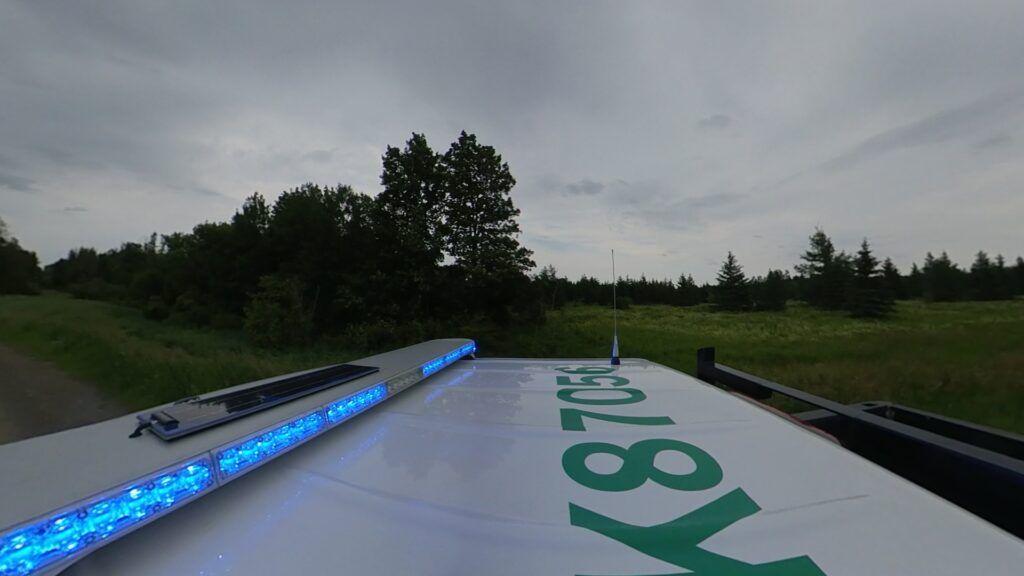
The US-Canada border as seen from a US Border Patrol car. Photo: Octavian Coman
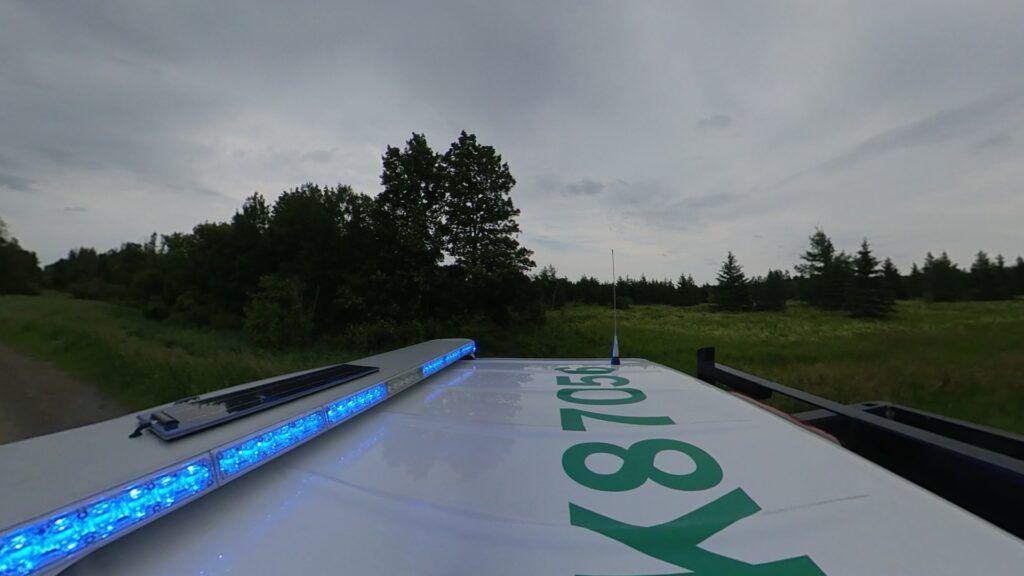
The US-Canada border as seen from a US Border Patrol car. Photo: Octavian Coman
Otherwise, the traffickers will continue to profit, asking those who desperately want to reach the United States for 15,000 dollars per person. And at least on the border with Mexico, as the agents of the American Border Police tell, it is not rare for traffickers to use migrants as bait, to keep the agents busy while on the other side of the border the groups try to introduce drugs into the USA.
We tried to find out from the Canadian authorities what happened to the group of Romanians who were expelled in February. The Canadian Border Services Agency told us that it cannot provide information about specific people - neither how they entered the country, nor what their status is. "What I can tell you is that all people trying to enter Canada must report to the CBSA [Canada Border Services Agency] and demonstrate that they meet the requirements to enter and stay in Canada," says spokesperson Judith Gadbois-St-Cyr.
A decision on whether they are allowed to stay in Canada or not is made on a case-by-case basis, taking into account factors such as "involvement in criminal activities, human rights violations, organized crime, security, health or financial reasons."
I asked Tyler Close, the agent who caught the 27 Romanians at the border in February, if he sometimes feels sorry for the people who risk so much to reach the US.
"I put my emotions aside. I have a job to do. Obviously, I care, I am also a paramedic. But what if I feel sorry for them? We all make choices in life. My job is to enforce the law. I do not let my emotions get in the way."
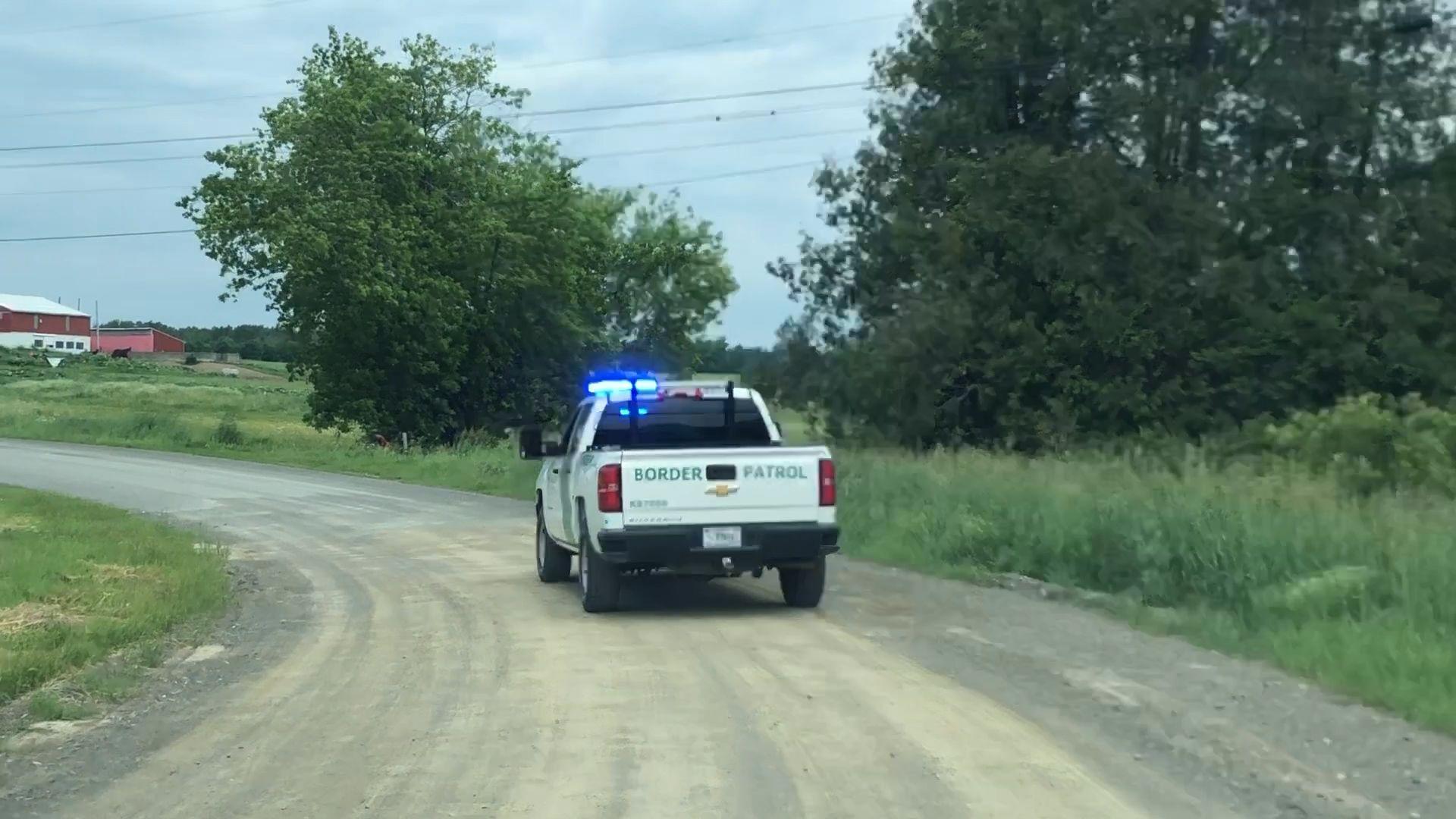
Border Police car on patrol. Photo: Octavian Coman
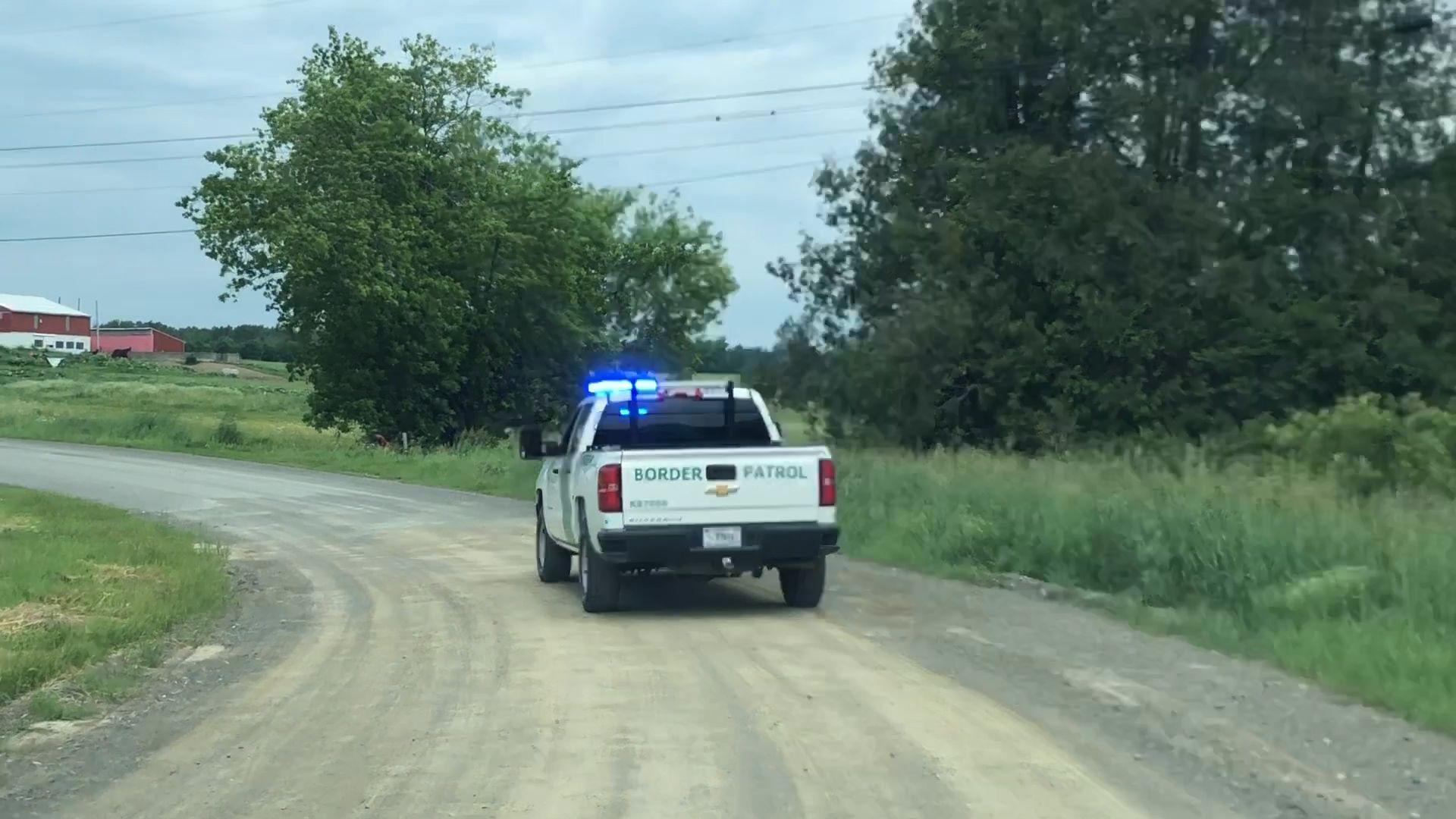
Border Police car on patrol. Photo: Octavian Coman
A trafficker with a track record
The case of Luigi Cristinel Popescu shows how complicated the migrant trafficking networks from Romania to the USA are. He is part of the mafia clans from Craiova.
Luigi Popescu, also known by the media as "Luis", came to the attention of Romanian justice in 2013. Together with other members of a traffic group from Craiova, according to the prosecutors, he helped almost 600 Roma people to leave Romania for Mexico. Of these, D.I.I.C.O.T. identified at least 300 people who arrived on American territory. The investigation was carried out with the support of the USA and Canada judicial authorities.
After two years of trials, by a final decision, the traffickers were, however acquitted by the Romanian judges.
Released by the magistrates, "Luis" did not become unemployed. Documents consulted by PressOne from a court in California show that he continued to organize illegal crossings of the American borders.
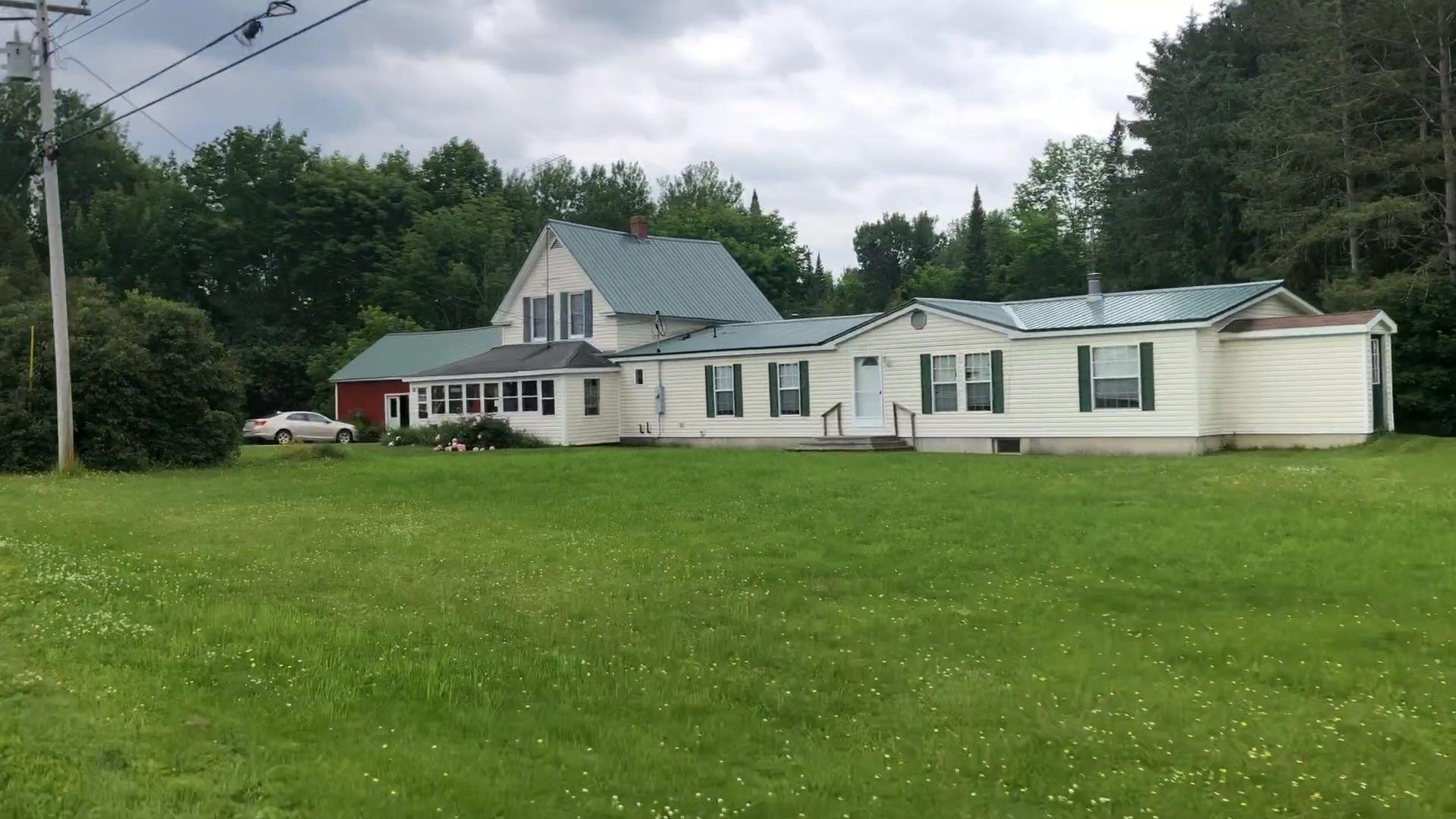
A house on the outskirts of the small town of Houlton, a border crossing increasingly favoured by Romanians who want to cross illegally from Canada into the US. Photo: Octavian Coman
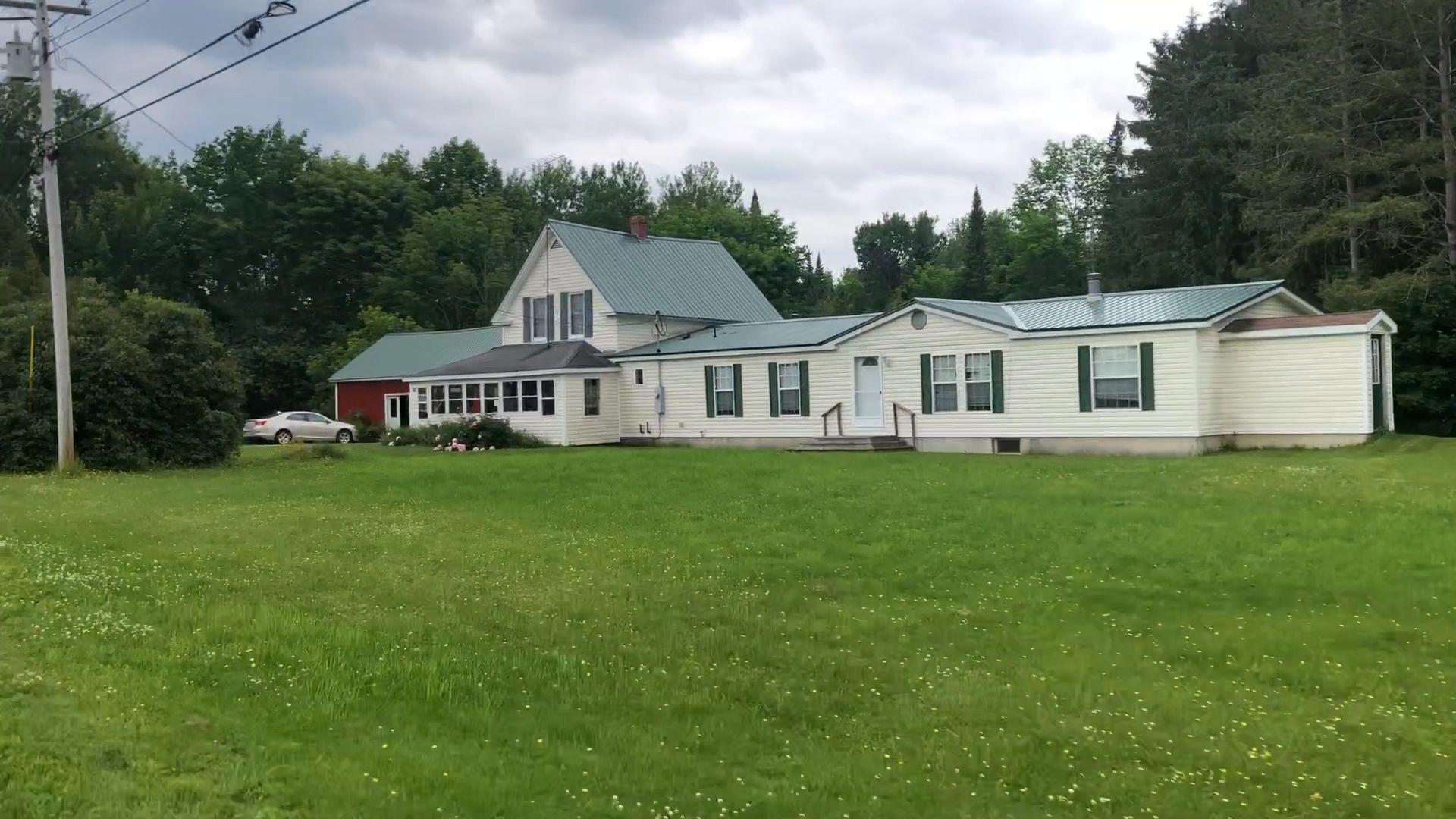
A house on the outskirts of the small town of Houlton, a border crossing increasingly favoured by Romanians who want to cross illegally from Canada into the US. Photo: Octavian Coman
In the summer of 2020, the man was arrested in Romania and extradited to the United States because, as the American prosecutors said, Luigi Popescu coordinated a network suspected of passing thousands of Romanians illegally across American borders.
The US trial documents, reviewed by PressOne, show that Luigi finally signed a plea agreement with US prosecutors in which he admitted that from 2012 to 2019 he helped more than a hundred migrants, mostly Romanians, to arrive illegally in the US. Taxes were 25,000 US dollars for a family, but they could go as low as 3,000 US dollars for each individual.
Luigi Popescu had built a group so extensive that he used both the southern border, the one with Mexico, and the northern one, near Canada, for his operations. In his "business" he was associated with guides, drivers or people who made their homes available. Some of them were Latin American citizens.
In the trial documents, the prosecutors are mainly interested in his actions near California, but an illegal crossing from the northern border in February 2019 is also mentioned. "Luis" contacted another Romanian, Stefan Alexandru Bratan, to meet with seven other co-nationals in Canada and discuss the details of crossing the border. After receiving the approval from Luigi Popescu, on February 2, 2019, Stefan Bratan was a guide for the seven Romanians and illegally crossed the border into the American state of Vermont.
The operation ended badly, however, because Stefan Bratan was caught. After two days, he was in custody, according to the documents from his file. He admitted to his actions and, after several months in prison, he was released in April 2019.
The same thing happened in the case of his boss, Luigi Popescu, who, following the agreement with the prosecutors, stayed in the US prison from August 2020 to August 2021, so only one year after his extradition from Romania.
Although PressOne reporters tried to find out if the two were still in the United States or were deported and whether the two are accused in other cases, we could not find further information.
Immigration lawyer Dana Bucin says that she cannot give her opinion in this case. In theory, she says that there are cases where the people caught agree to cooperate with the authorities. To get out of prison faster, they can denounce their collaborators.
"If you're a trafficker, you turn others in and get out clean. You get two years instead of ten and you get to stay on the territory of the United States, nicely, after you cooperated."

Avem nevoie de ajutorul tău!
Mulți ne citesc, puțini ne susțin. Asta e realitatea. Dar jurnalismul independent și de serviciu public nu se face cu aer, nici cu încurajări, și mai ales nici cu bani de la partide, politicieni sau industriile care creează dependență. Se face, în primul rând, cu bani de la cititori, adică de cei care sunt informați corect, cu mari eforturi, de puținii jurnaliști corecți care au mai rămas în România.
De aceea, este vital pentru noi să fim susținuți de cititorii noștri.
Dacă ne susții cu o sumă mică pe lună sau prin redirecționarea a 3.5% din impozitul tău pe venit, noi vom putea să-ți oferim în continuare jurnalism independent, onest, care merge în profunzime, să ne continuăm lupta contra corupției, plagiatelor, dezinformării, poluării, să facem reportaje imersive despre România reală și să scriem despre oamenii care o transformă în bine. Să dăm zgomotul la o parte și să-ți arătăm ce merită cu adevărat știut din ce se întâmplă în jur.
Ne poți ajuta chiar acum. Orice sumă contează, dar faptul că devii și rămâi abonat PressOne face toată diferența. Poți folosi direct caseta de mai jos sau accesa pagina Susține pentru alte modalități în care ne poți sprijini.
Vrei să ne ajuți? Orice sumă contează.
Share this

